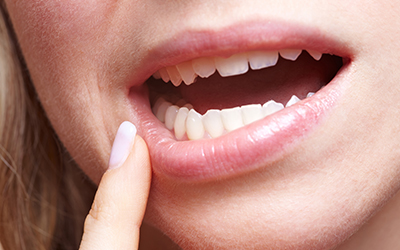Image Credit:
Image Credit:

While oral cancer can be a scary diagnosis, the prognosis is much better the earlier the cancer is caught. Here at Coastal Periodontics, we want all of our patients to live long and healthy lives. Because of this, we’ve put together a list of some early warning signs of oral cancer, as well as a checklist to use when performing oral cancer self-checks.
Some people are at a higher risk for oral cancer because of smoking, chewing tobacco, abuse of alcohol, or the habit of biting the inner cheeks or lips. If you are in any of the above categories, it’s especially important to know the oral cancer warning signs. These signs include:
Each month you should perform an oral cancer self-check. Focus on the following 6 areas:
For more information about oral cancer or to make an appointment with Dr. Kate Wilson here at Coastal Periodontics. Our periodontics office is located in Portsmouth, New Hampshire.